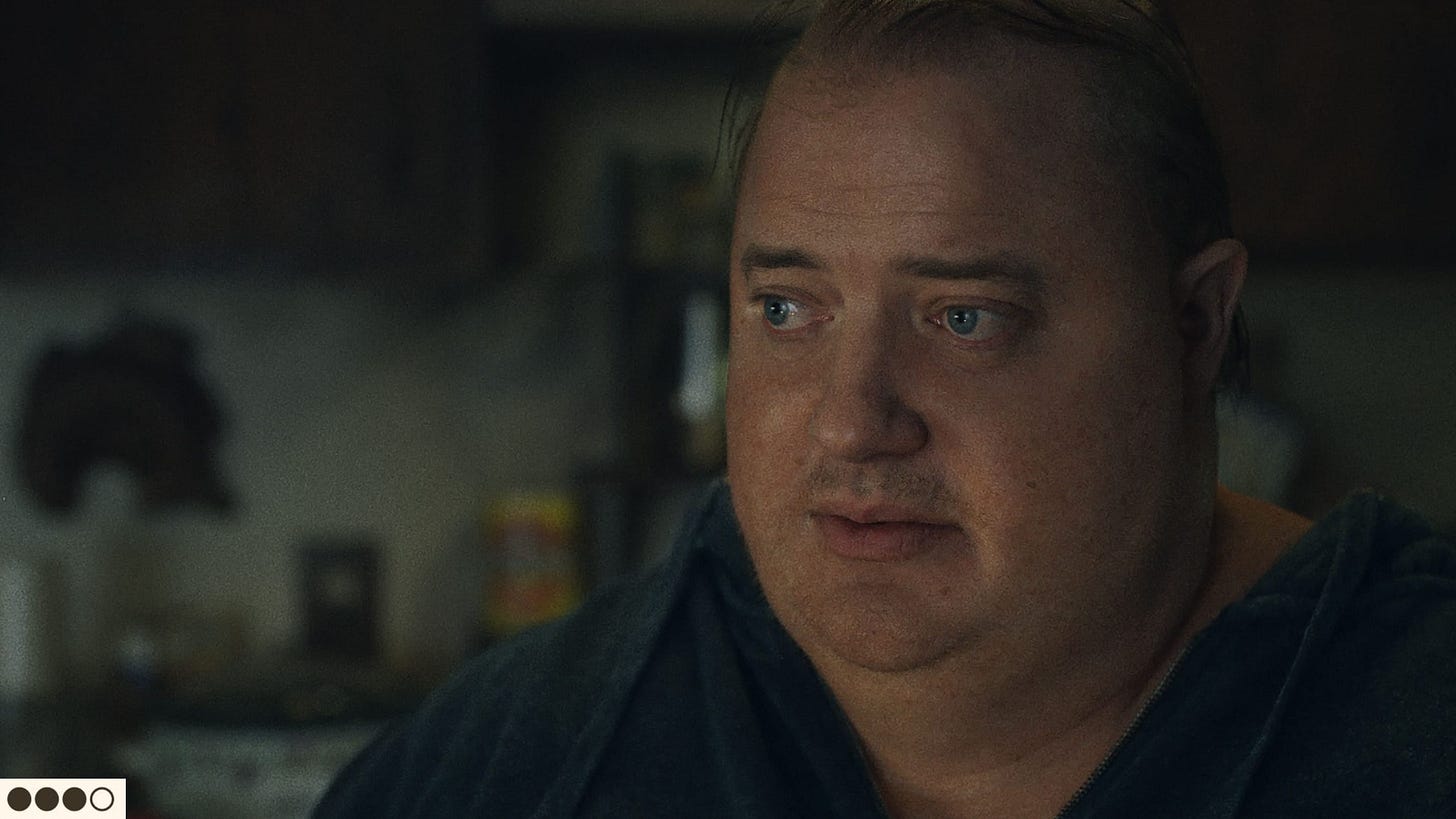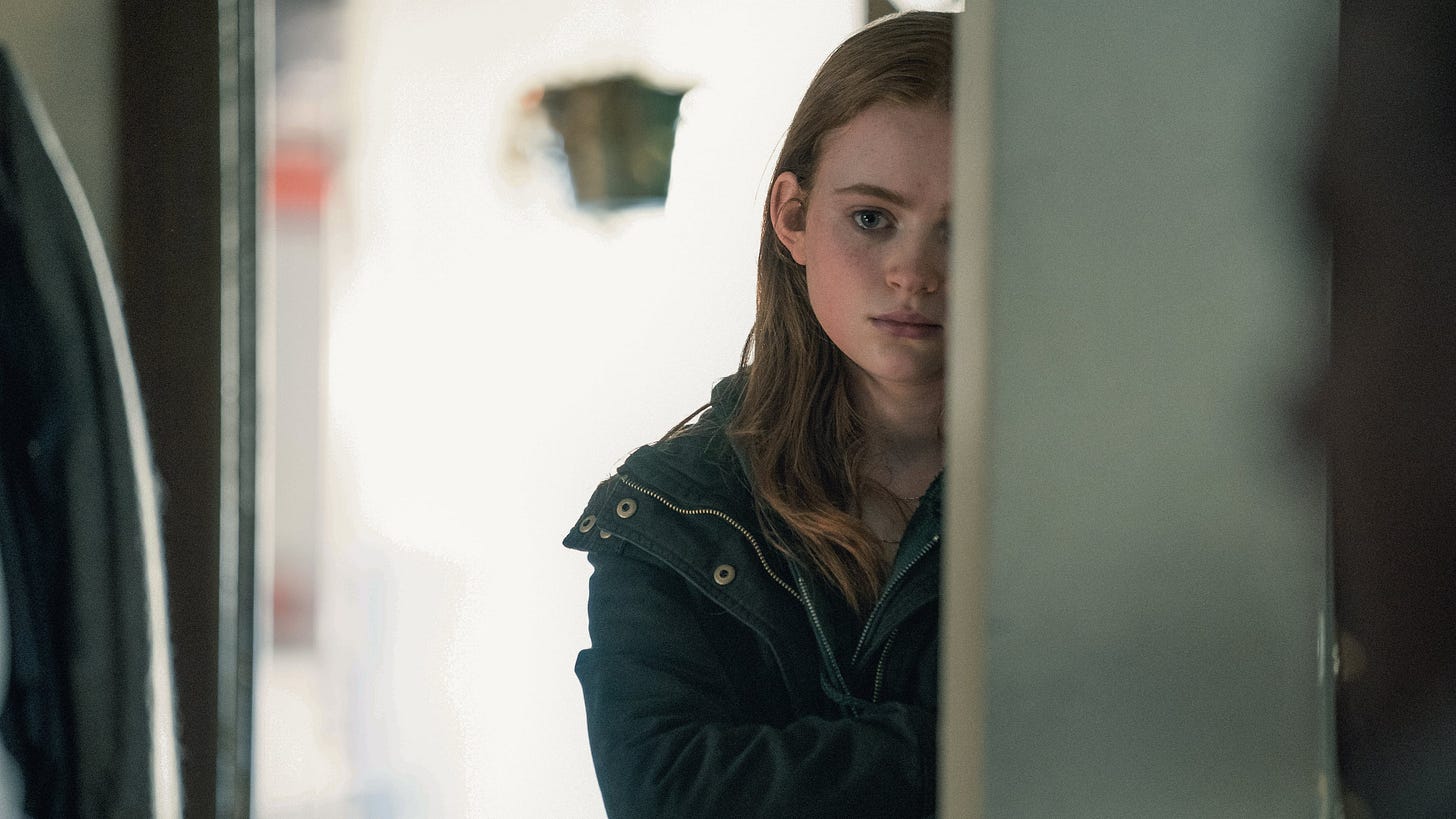“My body is but the lees of my better being.” —Moby-Dick
Whether or not The Whale is actually good almost seems beside the point. The narrative surrounding Darren Aronofsky’s latest movie has focused almost entirely on its star, and for good reason: Brendan Fraser was widely beloved during his heyday and has been widely missed since it ended. That his career downturn was due at least in part to his being the victim of a sexual assault only makes his resurgence all the more welcome. Everyone loves a comeback, especially when all available evidence suggests that the comeback kid in question is a genuinely nice person who deserves it.
Count me among those rooting for him. I grew up watching Brendan Fraser onscreen, as did most my age, and not just in The Mummy; I have endless fondness for the likes of Airheads, Encino Man, and especially Blast From the Past. They’re the kind of movies that make you feel like you’re getting to know the performer, not just the character — Fraser was acting, of course, but a fundamental good nature seemed to shine through in each of these roles. (He’s not unlike Keanu Reeves in that regard, and I don’t think it’s a coincidence that both of their career upturns were predicated on them being good people in an industry full of the opposite.)
That’s also true of The Whale, in which he plays a morbidly obese man named Charlie setting his affairs in order as his condition worsens. That mostly entails an attempt to reconnect with his teenage daughter, whom he hasn’t seen since he left her and her mother to be with a man eight years ago. Moments after we’re introduced to Charlie, he experiences a medical emergency so severe he thinks he’s going to die; rather than call an ambulance, he starts reading aloud an essay on Moby-Dick. Charlie teaches English online and values honesty above all else in the papers he grades, which explains his fondness for this piece of writing — it’s a bit rudimentary, but lines like “This book made me think about my own life” have the power of a mantra to him.
It’s difficult to write about Fraser’s performance without resorting to the usual superlatives. I could tell you that he disappears into the role, even under hundreds of pounds of prosthetics, and that the six-minute standing ovation he received in Venice wasn’t long enough. I could say that it brought me to tears in a way few performances ever have. All of that would be true, and yet it still wouldn’t convey the power of what he’s achieved. There aren’t enough awards in the world for it, though I suspect they’ll try.
All of which is a long way of saying that The Whale is indeed good — quite good, in fact, not to mention Aronofsky’s best film by a nautical mile. Much of the credit for that is owed to Samuel D. Hunter, whose play of the same name it’s based on, as well as the performances of Sadie Sink and Hong Chau as his daughter and friend, respectively. But this is ultimately Fraser’s movie. He’s in nearly every scene, cheerful but realistic about his circumstances and constantly apologizing to everyone around him for making them go through this with him. If he could, he’d probably say sorry to us as well. He wouldn’t need to: The Whale isn’t an easy experience, but it is a worthwhile one. It might even make you think about your own life.






